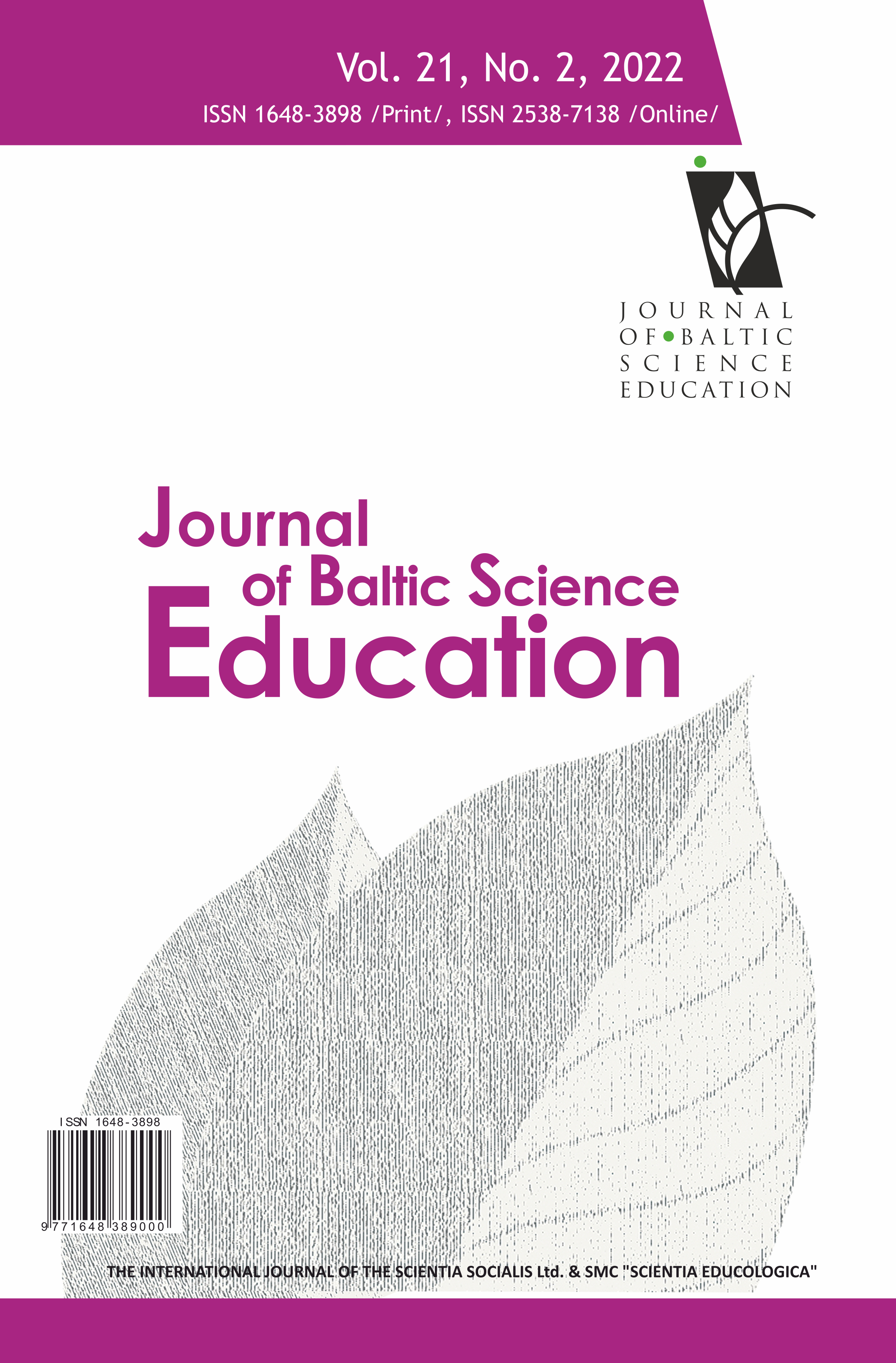SELF-REGULATED LEARNING STRATEGIES IMPACT FOURTH-GRADE STUDENTS’ POSITIVE OUTCOMES IN SCIENCE CLASS
SELF-REGULATED LEARNING STRATEGIES IMPACT FOURTH-GRADE STUDENTS’ POSITIVE OUTCOMES IN SCIENCE CLASS
Author(s): Busra Cengiz-Istanbullu, Gonul SakizSubject(s): Education, School education, Pedagogy
Published by: Scientia Socialis, UAB
Keywords: academic achievement; academic self-efficacy; academic worry; science motivation; self-regulated learning strategies (SRLS);
Summary/Abstract: For long years, researchers in the field believed that the development of self-regulated learning (SRL) behaviors of students could only be initiated around middle school years. Nowadays, a growing number of research around the world attempt to challenge this belief by demonstrating that SRL behaviors and strategies can emerge in students at an earlier age than expected through proper training and eventually affect students’ positive academic outcomes in the learning process. The purpose of this study was to examine the impact of the use of self-regulated learning strategies (SRLS) on fourth-grade students’ academic self-efficacy, science motivation, academic worry, and achievement in a primary school science classroom. A pre-test – post-test control group quasi-experimental design was used. The participants were 39 fourth-grade students from a private primary school in Istanbul, Turkey. The SRLS (goal-setting, planning, note-taking, monitoring and self-evaluation) used in the study were explicitly taught to the students in the experimental group. The data were collected using two self-report questionnaires and an achievement test. A 2x3 Split-plot ANOVA test was used for data analyses. The results revealed that the use of SRLS significantly positively impacted students’ perceived academic self-efficacy, science motivation and academic achievement; and, significantly negatively affected their academic worry. The results of the retention tests, however, showed the necessity of continuous stimulation of SRLS to obtain optimal benefits for student outcomes.
Journal: Journal of Baltic Science Education
- Issue Year: 21/2022
- Issue No: 2
- Page Range: 192-206
- Page Count: 15
- Language: English

